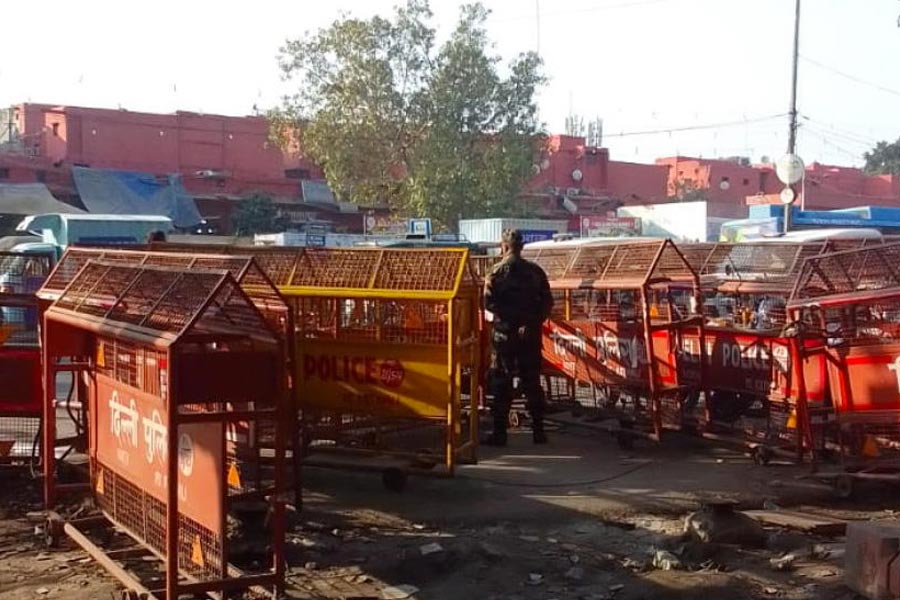 |
| Custard apples on sale at Kutchery Road in Ranchi on Wednesday. Picture by Hardeep Singh |
Custard apples are supposed to remind people of vanilla custard and green apples, even though the dessert doesn’t have seeds and apples don’t have bumps.
The capital seems to be on a custard apple binge spree. Locally known as shareefa, women vendors on roadside pavements are selling the fruit for Rs 50-Rs 60 per kg at Kutchery and Firayalal Chowk marketplaces. Packed with the goodness of Vitamin C, iron and dietary fibre, the fruit is priced affordably for the middle class.
The winning formula of low price and high goodness seems likely to continue for buyers as ICAR Research Complex of Eastern Region, Plandu, has taken over its cultivation. It aims to teach Jharkhand farmers how to grow this fruit on a mass-scale, giving them a lucrative source of income from the seasonal fruit between August and October.
According to ICAR scientists, custard apples grown this year in the natural forests of Palamau and West Singhbhum’s Hatgamharia block this year weigh around 10, 000 tonne. Local vendors, who earn around Rs 600-Rs 1,000 on a good day, collect this fruit, which they call the Arka-Sahan variety, from forest areas of Bundu, Tamar and Muri. The cash deals between farmers and vendors can be regularised if the fruit is grown on a mass scale.
Scientists are looking forward to a bumper production of this fruit crop in the next few years by linking farmers to mass-scale farming in the hinterland.
They are also hoping that the Annona reticulata or the fruit tree can thrive in wasteland. Saplings, then, can be sold to farmers for Rs 25 each and grown in land earlier untouched by cultivation.
Bikash Das, a fruit scientist working with ICAR, explained why. “This fruit crop can grow in what is technically known as degraded land. It’s a hardy plant and does not require much water. But the fruit can improve the economic lot of farmers. In fact, they can grow this plant as fillers between mango orchards,” Das said.
He added that farmers of Jharkhand could make a success of the venture as it doesn’t require much investment. “This is a low-investment, low-maintenance kind of a fruit crop. In the next few years we are expecting bumper production of this crop,” Das said.
Vendor Malti Devi conceded this was a good year. “Last year, we were unable to pluck this fruit as most of it was spoilt. Perhaps, the rainfall was not suitable for the crop as the fruit turned black and hard on the tree itself,” she said.
These are the kind of challenges that the ICAR scientists should address easily. And then perhaps, Jharkhand can also compete with states like Maharashtra and Andhra Pradesh, considered custard apple kingdoms.
Can Jharkhand make it big with custard apples? Tell ttkhand@abpmail.com











